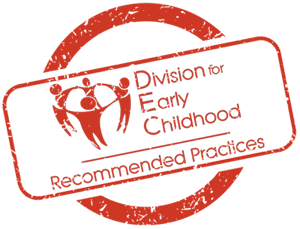English Learners with Disabilities: Supporting Young Children in the Classroom
 This module offers an overview of young children who are English learners. Further, it highlights the importance of maintaining children's home language at the same time they are learning a new or second language, discusses considerations for screening and assessing these children, and identifies strategies for supporting them in inclusive preschool classrooms (est. completion time: 1.5 hours).
This module offers an overview of young children who are English learners. Further, it highlights the importance of maintaining children's home language at the same time they are learning a new or second language, discusses considerations for screening and assessing these children, and identifies strategies for supporting them in inclusive preschool classrooms (est. completion time: 1.5 hours).
Earn the Professional Development Certificate for this module.
Work through the sections of this module in the order presented in the STAR graphic above.
Related to this module
Copyright 2025 Vanderbilt University. All rights reserved.



